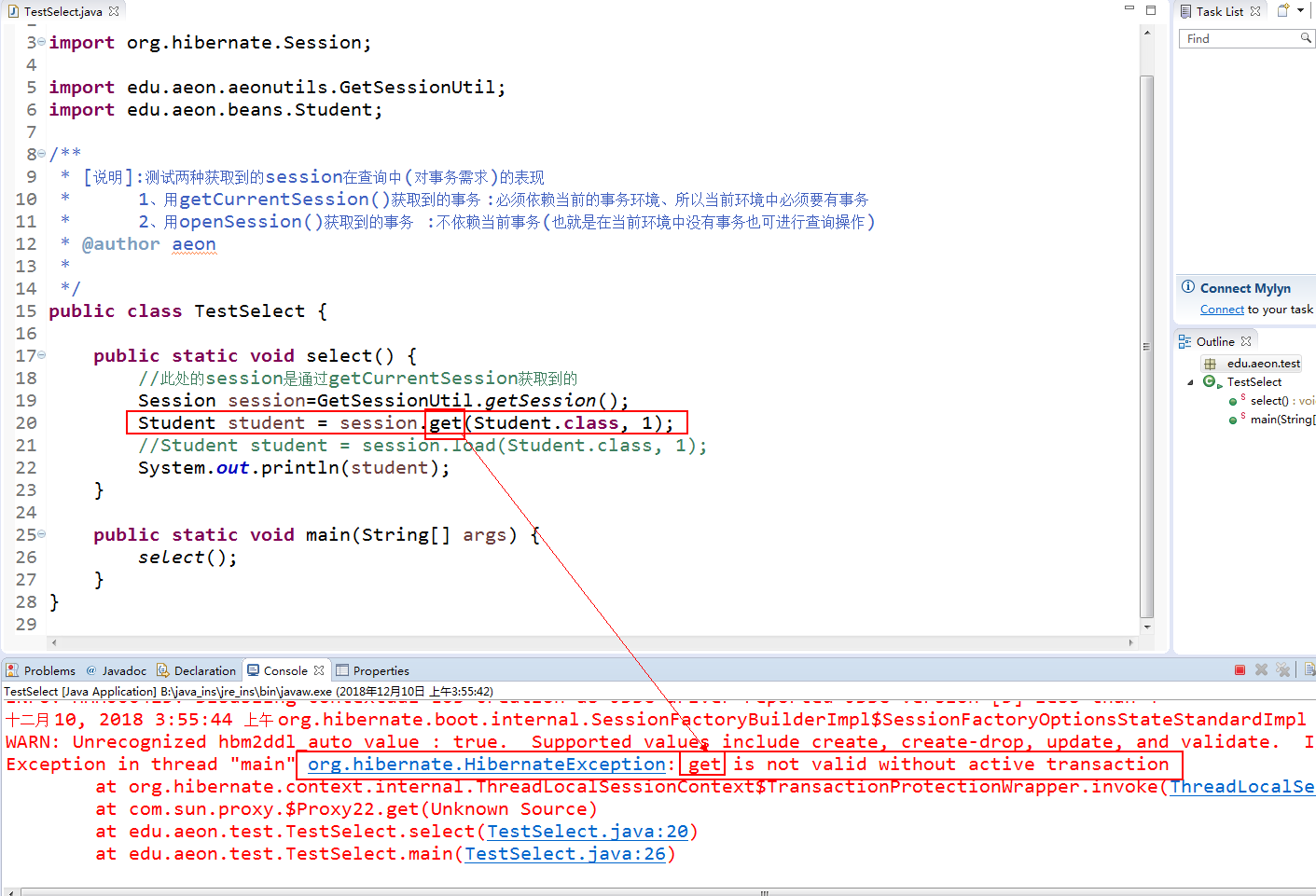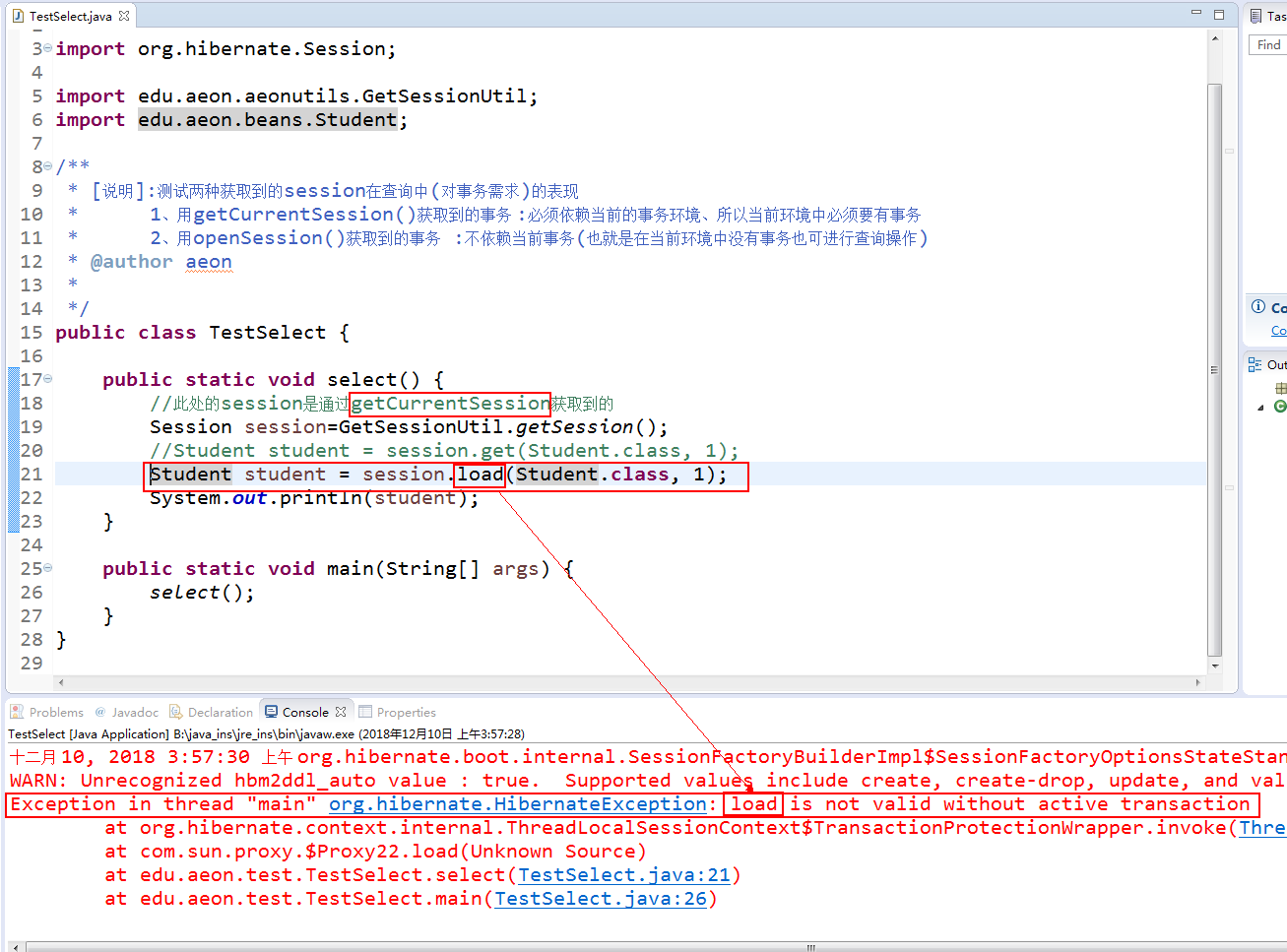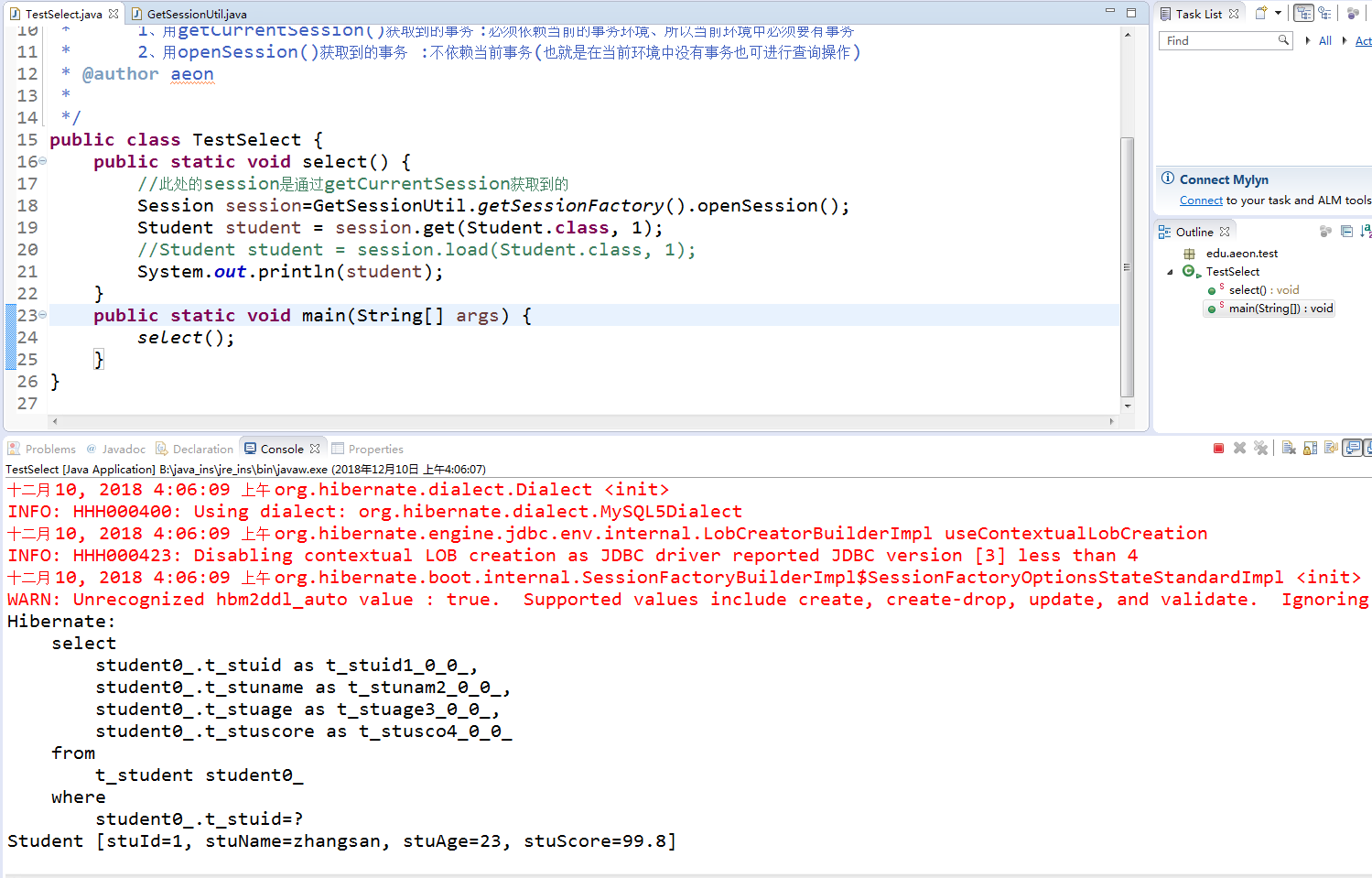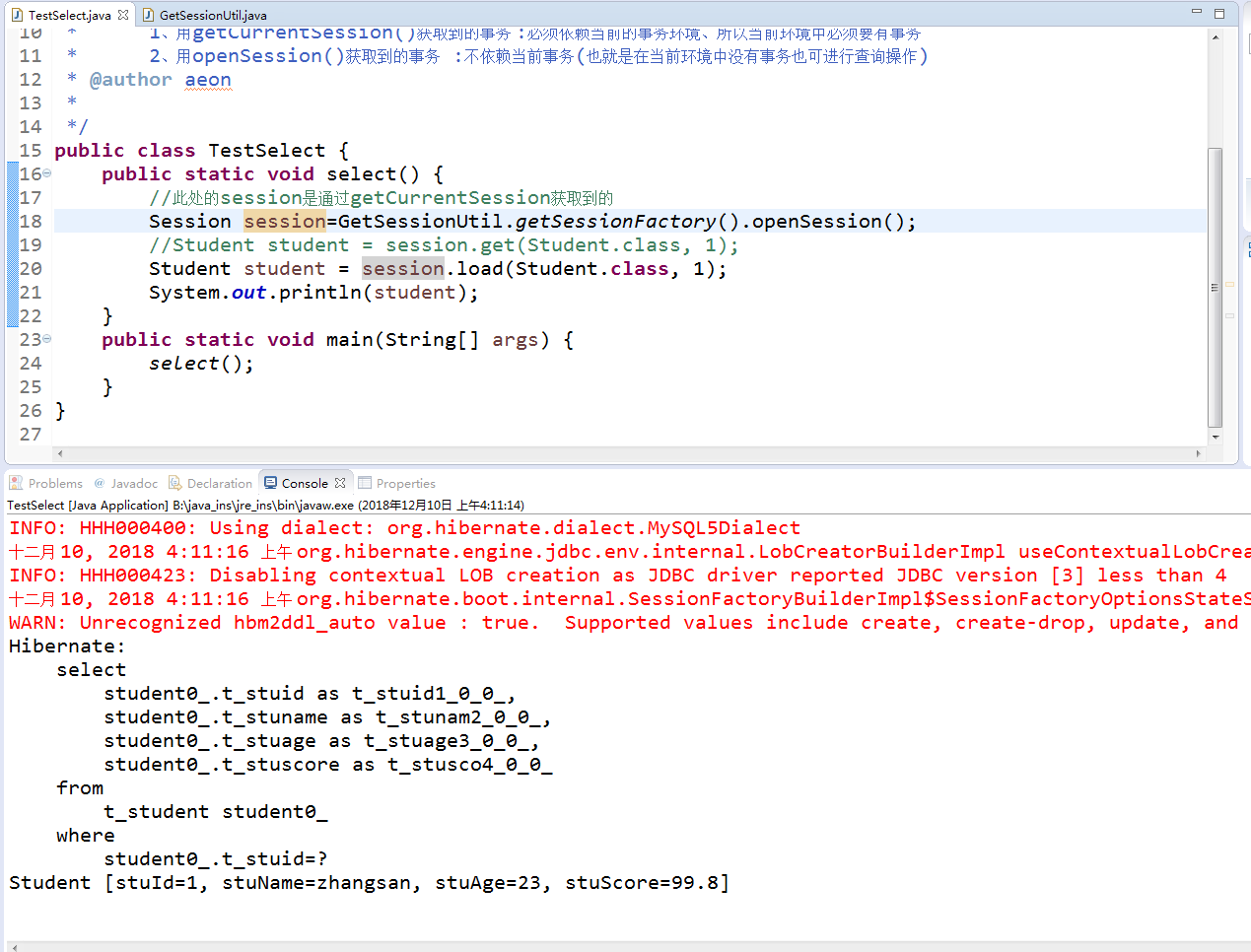dljd_026_两种方式获取到的session查询时对事务环境的不同依赖
一、测试两种获取到的session在查询中的表现
1.1通过getCurrentSession获取到的session查询对象
1.1.1get方法通过getCurrentSession获取到的session查询对象
package edu.aeon.test; import org.hibernate.Session; import edu.aeon.aeonutils.GetSessionUtil; import edu.aeon.beans.Student; /** * [说明]:测试两种获取到的session在查询中(对事务需求)的表现 * 1、用getCurrentSession()获取到的事务 :必须依赖当前的事务环境、所以当前环境中必须要有事务 * 2、用openSession()获取到的事务 :不依赖当前事务(也就是在当前环境中没有事务也可进行查询操作) * @author aeon * */ public class TestSelect { public static void select() { //此处的session是通过getCurrentSession获取到的 Session session=GetSessionUtil.getSession(); Student student = session.get(Student.class, 1); //Student student = session.load(Student.class, 1); System.out.println(student); } public static void main(String[] args) { select(); } }
测试结果截图:

1.1.2load方法通过getCurrentSession获取到的事务查询对象
package edu.aeon.test; import org.hibernate.Session; import edu.aeon.aeonutils.GetSessionUtil; import edu.aeon.beans.Student; /** * [说明]:测试两种获取到的session在查询中(对事务需求)的表现 * 1、用getCurrentSession()获取到的事务 :必须依赖当前的事务环境、所以当前环境中必须要有事务 * 2、用openSession()获取到的事务 :不依赖当前事务(也就是在当前环境中没有事务也可进行查询操作) * @author aeon * */ public class TestSelect { public static void select() { //此处的session是通过getCurrentSession获取到的 Session session=GetSessionUtil.getSession(); //Student student = session.get(Student.class, 1); Student student = session.load(Student.class, 1); System.out.println(student); } public static void main(String[] args) { select(); } }
测试结果:

1.2通过openSession获取到的session查询对象
1.2.1get方法通过openSession获取到的session查询对象
package edu.aeon.test; import org.hibernate.Session; import edu.aeon.aeonutils.GetSessionUtil; import edu.aeon.beans.Student; /** * [说明]:测试两种获取到的session在查询中(对事务需求)的表现 * 1、用getCurrentSession()获取到的事务 :必须依赖当前的事务环境、所以当前环境中必须要有事务 * 2、用openSession()获取到的事务 :不依赖当前事务(也就是在当前环境中没有事务也可进行查询操作) * @author aeon * */ public class TestSelect { public static void select() { //此处的session是通过getCurrentSession获取到的 Session session=GetSessionUtil.getSessionFactory().openSession(); Student student = session.get(Student.class, 1); //Student student = session.load(Student.class, 1); System.out.println(student); } public static void main(String[] args) { select(); } }
测试结果截图:

1.2.2load方法通过openSession获取到的session查询对象
package edu.aeon.test; import org.hibernate.Session; import edu.aeon.aeonutils.GetSessionUtil; import edu.aeon.beans.Student; /** * [说明]:测试两种获取到的session在查询中(对事务需求)的表现 * 1、用getCurrentSession()获取到的事务 :必须依赖当前的事务环境、所以当前环境中必须要有事务 * 2、用openSession()获取到的事务 :不依赖当前事务(也就是在当前环境中没有事务也可进行查询操作) * @author aeon * */ public class TestSelect { public static void select() { //此处的session是通过getCurrentSession获取到的 Session session=GetSessionUtil.getSessionFactory().openSession(); //Student student = session.get(Student.class, 1); Student student = session.load(Student.class, 1); System.out.println(student); } public static void main(String[] args) { select(); } }
结果截图:

结论:
1.不管是用get还是load通过getCurrentSession获取到的session进行查询(加载)对象时必须依赖当前的事务环境(当前环境中必须存在事务)、也就是在查询之前必须要有事务、必须手动开启(session.beginTransaction())。
2.不管是用get还是load通过openSession获取到的session进行查询(加载)对象时不依赖当前的事务环境(当前环境中可以不存在事务)、也就是查询之前我们不需要开启事务



 浙公网安备 33010602011771号
浙公网安备 33010602011771号